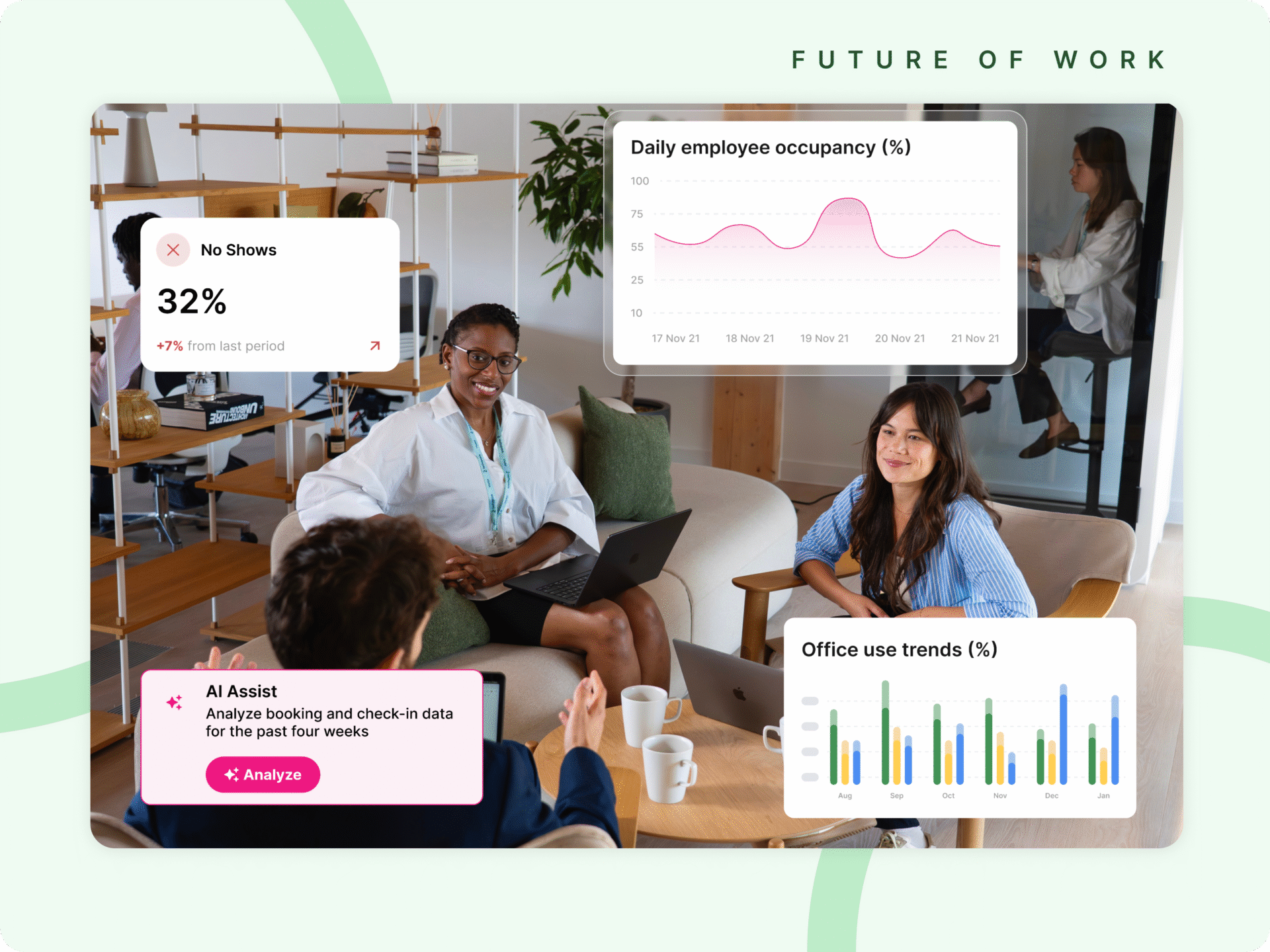5 Predictions About Hybrid Work In 2023 And Beyond

Now that 2022 has come to a close, businesses worldwide continue to stew over some fundamental questions.
What role will the office play in our company?
Are people productive when they work from home?
How can I develop policy for my employees and business to flourish?
All the while, the thought and support behind hybrid work just keep on gaining traction. Business leaders are beginning to see the light at the end of the tunnel—a future where both home and office play key roles in the success of their enterprises.
But there’s still a way to go until hybrid is the bread and butter.
Here are 5 predictions about how hybrid work will continue to evolve in 2023:
1. Negative Effects Of 100% Remote Will Gain More Attention
At the moment, it feels like we’re still in a bit of a bubble.
Workers who transitioned to remote work during the pandemic stumbled upon the promised land: full flexibility, unprecedented work/life balance and a tidy salary to boot.
And it’s proving very hard to let go. Working in pyjamas just feels so easy, doesn’t it?
But research is only just beginning to emerge around some of the side effects of spending so much time alone. It turns out the promised land comes at a cost.
In 2023, we’ll find out a lot more about how deep the impact of 100% remote work is—and what we can do to counter it.
2. Misconceptions About Home Office Productivity Will Persist
The latter half of 2022 shed light on some of the approaches big tech companies are taking towards remote work.
Twitter look like they’re stepping up efforts to return to fully office-based work, while Apple also announced measures to mandate in-person work.
The intentions and reasoning are totally understandable: leaders in high achieving businesses are skeptical of home office, and see in-person collaboration as the most efficient work mode.
But radical implementation is problematic. It reinforces the misconception that there is only one way forward—and that it involves forcing a 5-day office week. It also ignores the unique benefits that WFH brings.
That misconception will only grow in 2023, as aspirational business owners look for the templates set by established companies and start to drive their own employees back to office-only work.
Home office will need to be put in a context where it makes sense. That context is—of course—hybrid work.
3. Employers And Employees Will Clash Over Office Work
Eventually, the lack of collective clarity about what is best will lead to a clash between employers and employees.
The former will be looking for ways to galvanize their team into action—developing policies and mandates for office work. The latter will be uncompromising when it comes to their rituals, and defensive of their right to work from home.
The result? A shock to both sides. Workers will quit and look for companies offering the degree of flexibility they require. Employers will need to lay off staff who can’t agree to their core principles.
Ultimately, this clash will play a crucial part in building the case for hybrid work.
Business owners will realize they are fighting an uphill battle to force office work, and workers will encounter fewer and fewer opportunities offering them total flexibility.
If only someone was thinking about a system that works for both of them…
4. Performance Will Become A Key Currency
2023 will see employers will focus on their fundamentals. After a tough year, they’ll look to tighten their budgets and think deeply about how to optimize their workforce, workplace and work processes.
In doing so, their attention will turn to performance.
On the one hand, businesses will be on high alert for under-performers — those members of their workforce who deliver under-par work and occupy space in physical offices, or predominantly remote workers who exhibit signs of poor self-management.
On the flip side, they’ll also be keen to identify who their top performers are. Those employees who consistently deliver outstanding work, regardless of their location, will become invaluable assets — and companies will look to reward them with unique remote work possibilities and greater flexibility.
Placing a premium on performance will bring huge savings for companies in the long term. A top performing team that is spread efficiently between office and home work will result in leaner salary and real estate models.
5. The Hybrid Work Market Will Boom
Underpinning all of these conversations in 2023 will be a global acceleration towards hybrid work.
As employers begin to find the right middle ground with their teams, they’ll be looking for tools to help them manage a work system that is totally new to them. (It turns out coordinating team members who are in different places at different times is harder than you’d think.)
This year, we’ll see a huge increase in the number of companies operating with hybrid management software. HR departments across the world will search far and wide for a solution that helps them coordinate their people, projects and spaces.
The hybrid work market is poised to explode.




